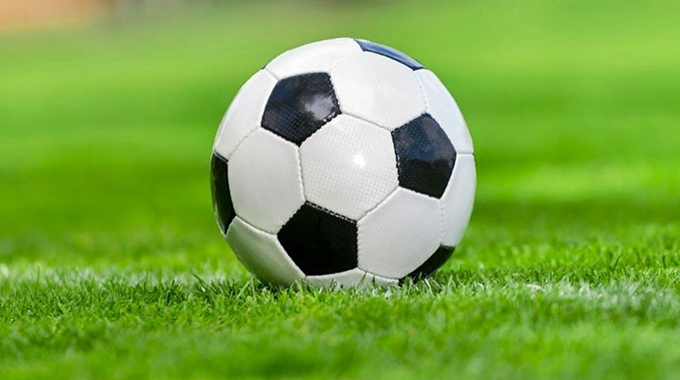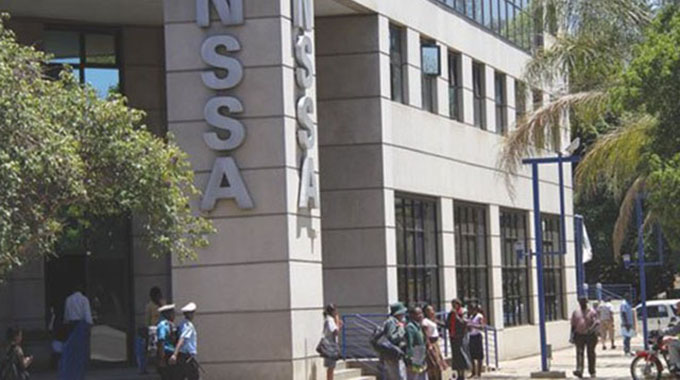Editorial Comment: Local football needs more investors

THE sad story in the sports pages this week was about CAPS United sacking six of their senior players over a crippling industrial action that marred their defeat to Cranborne Bullets at the National Sports Stadium last week.
The players were dismissed for engineering the strike to press for payment of their dues.
But three were later pardoned and are expected to be part of the team today when they face league champions FC Platinum at Mandava.
In that vein, we have to spare a thought for the families of those affected by the unfortunate development.
Relentless financial problems at Premiership side CAPS United are a constant reminder of how our local football is struggling to stay afloat.
This is the second time, before the season has even reached the half way stage that CAPS United have had to deal with player mutiny over money issues.
Just two months ago, CAPS United players missed almost two weeks of training in protest over outstanding salaries and had their game against Black Rhinos postponed.
They also suffered an exodus of players during the last transfer window as a result of financial instability.
Then last Sunday, Makepekepe almost failed to fulfil their home fixture against Cranborne Bullets at the National Sports Stadium.
The game only started 45 minutes late.
If the game had failed to kick-off as scheduled, the sad development would have impacted badly on the brand of the local Premiership.
It was also going to be a huge embarrassment for CAPS United, whose major shareholder, Farai Jere, is the chairman of the Premier Soccer League.
CAPS United are one of the traditional ig Three in the league, along with Highlanders and Dynamos and they always ought to set the benchmarks for the smaller teams.
But Makepekepe’s financial challenges are well-documented, with the club hierarchy unable to secure sponsorship.
The situation has been made worse by the poor attendances post-Covid-19. CAPS United are one of the clubs that have found it hard to cope following the disruptions caused by the pandemic in the last two years.
The pandemic has added a burden to an already dire situation.
A closer look could reveal that most of the individually-owned clubs could be facing the same crisis as CAPS United. The difference is that they have just managed to contain the situations in their respective clubs.
Tenax and Whawha almost failed to pay affiliation fees after they got promoted two years ago despite falling under the umbrella of the Zimbabwe Prisons and Correctional Services.
Yadah owner Walter Magaya has come out in the open about how the costs of running the club were taking a toll on him, to the extent of contemplating selling the franchise at some point so that he could concentrate on national team projects and promoting sports in the cell groups within his church.
Harare City, which is bankrolled by the Harare City Council, has also been in the headlines over recurring financial challenges.
Giants Highlanders also faced the same predicament before the coming in of energy giants Sakunda Holdings to their rescue.
What has been reassuring is that more than half the teams in the league are owned by companies, and that has really helped to keep players’ salaries up to date.
But the companies have only done so much. Running football in Zimbabwe is an expensive business. What the clubs get in terms of prizes is just a small fraction of their budgets.
Clubs meet expenses on a daily and monthly basis. They need to hire grounds for training and match days, pay for laundry for their training and playing equipment, transport to training and to league games, accommodation for away games, food for the players and staff.
They also have fixed monthly expenses such as office rentals, salaries and sometimes winning bonuses, among many other costs.
In the absence of strong corporate backing, most of the clubs rely on gate takings to supplement their budgets. But they have not realised much because of the suppressed attendance.
The CAPS United situation should act as an SOS to the corporate world to consider partnerships with football.
Sponsorship may not necessarily only be cash injection but also bargains in the provision of services to lessen the strain on the clubs’ budgets.
Domestic football is crying out for support from business to spur further development of the industry.










Comments